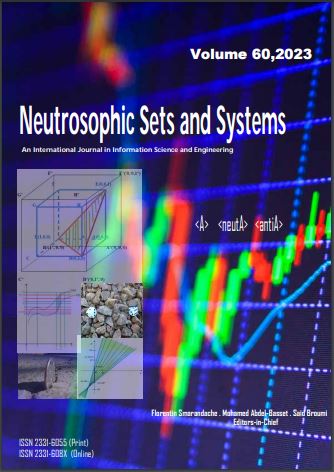Using Neutrosophic Trait Measures to Analyze Impostor Syndrome in College Students after COVID-19 Pandemic with Machine Learning
Keywords:
Neutrosophic psychology, Impostor syndrome, Neutrosophic trait measure, SVM, KNN, Random forestAbstract
Impostor syndrome or Impostor phenomenon is a belief that a person thinks their success is due
to luck or external factors, not their abilities. This psychological trait is present in certain groups like women.
In this paper, w e propose a neutrosophic trait measure to represent the psychological concept of the trait
anti trait using re ned neutrosophic sets. This study analysed a group of 200 undergraduate students for
impostor syndrome, perfectionism, introversion and self-esteem: after the COVID pandemic break in 2021.
Data labelling w a s carried out using these neutrosophic trait measures. Machine learning models like Support
Vector Machine(SVM), K-nearest neighbour (K-NN), and random forest were used to model the data; SVM
provided the best accuracy of 92.15%.
Downloads
Downloads
Published
Issue
Section
License
Copyright (c) 2023 Neutrosophic Sets and Systems

This work is licensed under a Creative Commons Attribution-NonCommercial-ShareAlike 4.0 International License.



